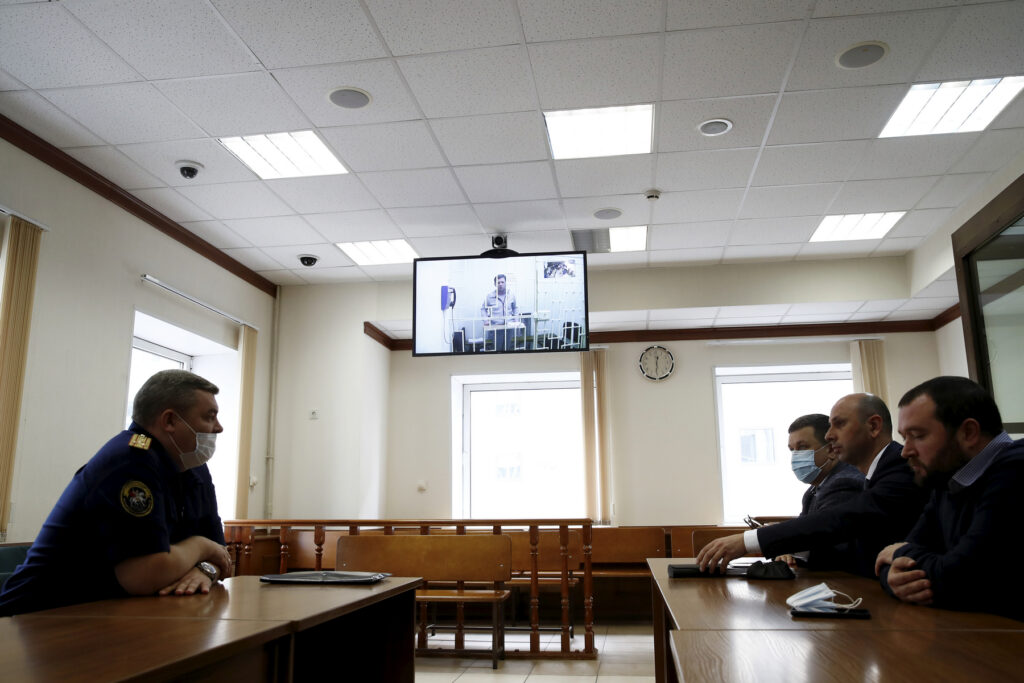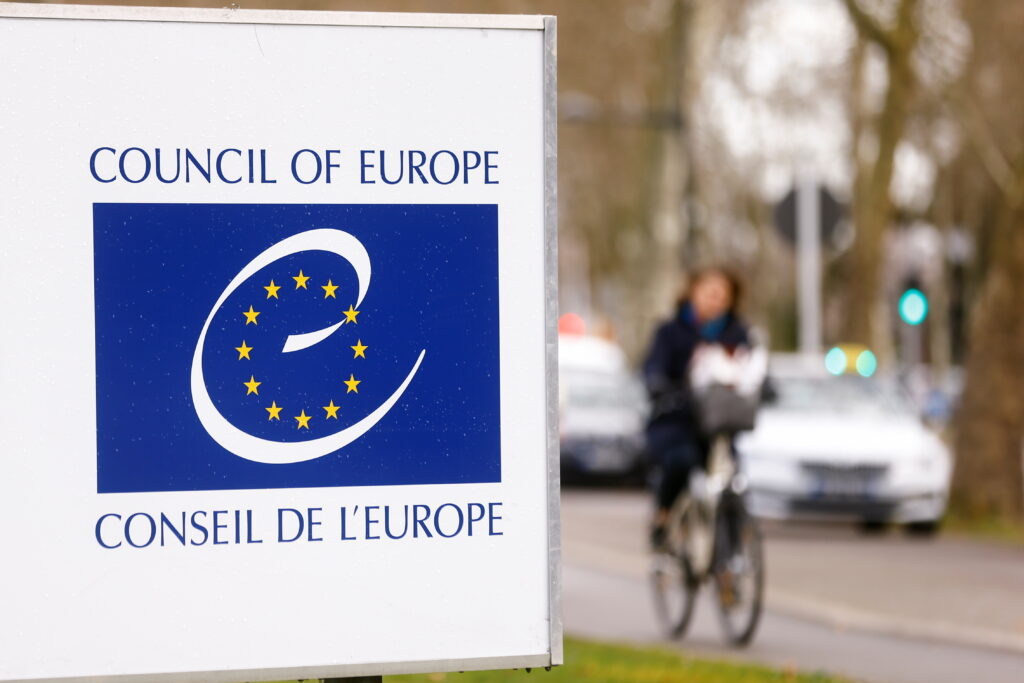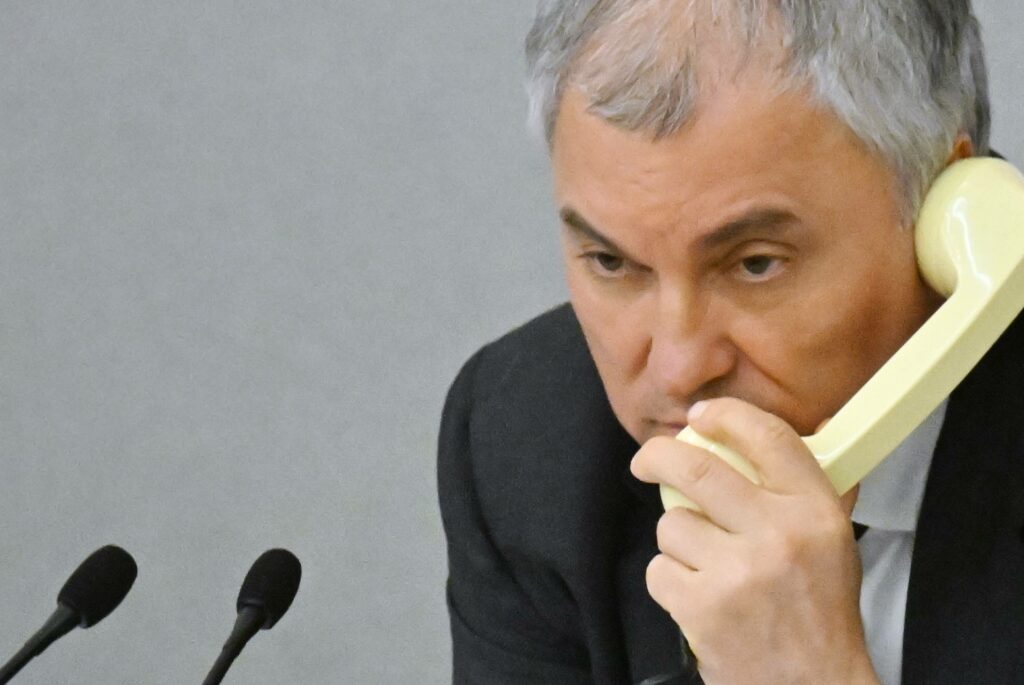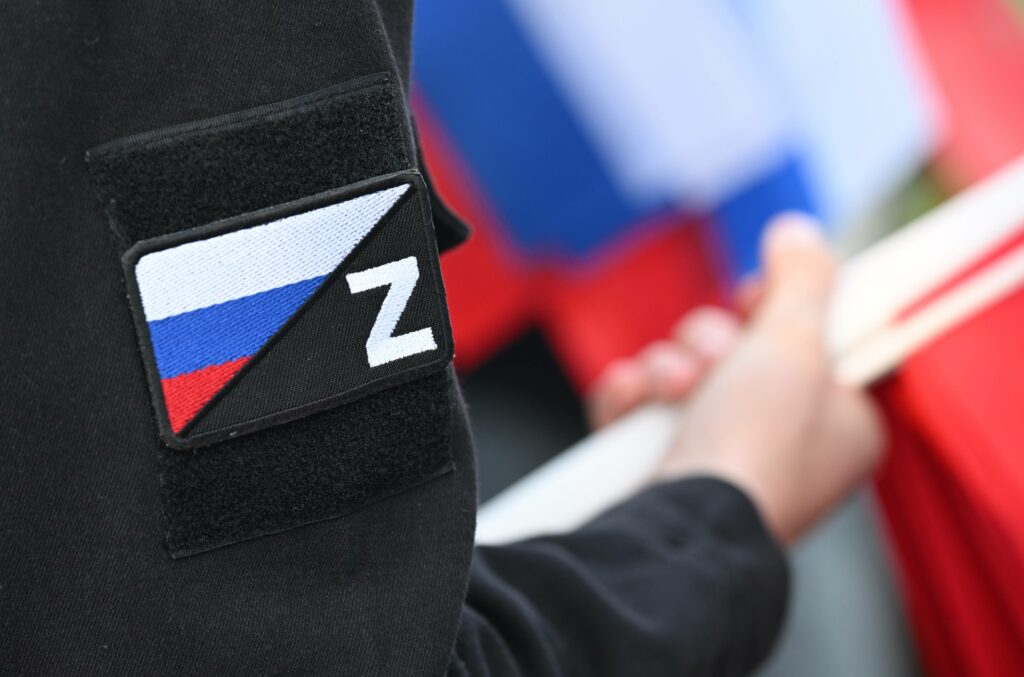The COVID-19 pandemic has significantly affected the courts of general jurisdiction in Russia. Judges and court staff have to work under constantly changing circumstances and rules while exposing themselves to infection. The situation has been aggravated by the need to bridge gaps in the regulatory framework. And there has been an influx of new cases. Most of these concern the dissemination of fake news and the violation of emergency rules to combat the spread of the virus.
Stressful conditions are exposing bottlenecks in the judicial system. Existing problems have been exacerbated, and priorities have come to the fore. These are the conclusions drawn by our latest OVD-Info study of Russia’s courts of general jurisdiction during the pandemic.
Issues with norms and regulations
Dealing with an emergency situation brings new rules, which have to be amended constantly. On 18 March, the Supreme Court of the Russian Federation (SC) imposed restrictions on the lower courts from 19 March to 10 April. The SC ordered that the lower courts reduce in-person appointments and restrict access to the courts by those who are not parties to judicial proceedings, take on only ‘urgent’ cases and accept only documents sent electronically or by post. These measures were extended twice in April and were binding until 12 May. Furthermore, the SC judicial reviews of 21 and 30 April clarified the rules for calculating procedural time limits under the new circumstances, indicated alternative measures of restraint instead of arrest in criminal cases, noted the urgency of motions for early release on parole and differentiated the conditions for the application of new administrative and criminal provisions in cases of violations of the pandemic-related rules. Thus, the fact that the rules have been frequently extended and changed, as well as the fact that they are issued and clarified in the form of different documents, may indicate the lack of a coherent action plan.
The measures have had a negative impact on the public nature of court proceedings: the public and journalists are no longer allowed to attend trials, whether they are held offline or online. The same goes for the right to a defence: besides lawyers are not always being able to take part in court hearings, they have had difficulties accessing case files.
Such restrictions on the fundamental guarantees of the right to a fair trial are clearly beyond the SC’s competence: according to the Russian Constitution, such measures can only be introduced by the federal legislature. This has not been done, although technically and politically nothing has prevented the adoption of a special law. For example, the Russian Parliament adopted in one day provisions on criminal and administrative liability for violations of the emergency regulations and for dissemination of fake news. Those regulations entered into force as early as 1 April.
The lower courts have been granted broad discretionary powers when it comes to restrictions imposed by the SC: they themselves determined which cases to consider urgent and which to postpone (the SC proposed an open-ended list), whether to hear cases in a court building or online, which restrictions to leave in place and which to lift as of mid-May. This made the situation unpredictable for the parties to judicial proceedings and resulted in significant differences in judiciary practice among different courts even within the same city. Thus, judges could use their discretion to arrange and postpone hearings. Due to the pandemic, the parties to judicial proceedings could apply to postpone proceedings only remotely. It happened that judges received motions too late. OVD-Info has come across cases where judges themselves postponed hearings until after the quarantine measures were lifted, satisfied motions for postponement and heard cases without the presence of the parties to the proceedings. According to the Judicial Department of the SC, in the first six months of 2020, courts imposed administrative penalties on more than 1 million people while conducting hearings in their absence — an increase of 250,000 cases (or 30%) compared to the same period in 2019.
The courts have also been hit by restrictions under the emergency regulations imposed by regional authorities, the state public health physician and the President. The rules introduced by the courts and executive authorities at various levels are not always harmonised, however. This can bring extra headaches. For example, due to local requirements for a two-week quarantine for visitors to regions, lawyers from Moscow could not participate in trials in other cities. In cities using digital passes, a legal monopoly of trial lawyers was established. Other representatives of the legal profession had only limited freedom of movement. An added uncertainty came from the period of non-working days approved by Putin, which was not interpreted by the SC: in some courts, employees did not pick up correspondence from post offices on these days. Litigation documents did not reach the courts as a result.
Implementation of online solutions
Given the pandemic, the need to handle cases online became acute. Still, the court system was not ready for a full transition to new technologies. Already in April, the SC introduced and started using its own platform for online conferences. However, district courts continued to use messenger apps like WhatsApp or Skype. These are not trusted channels from the point of view of Russian regulators. Then came problems with the quality of the connection, a failure to confirm users’ identity or authorise user rights. As a result, trials were held in a virtually closed environment. No public members could observe them. It was up to judges to decide whether witnesses would be interrogated, whether lawyers would take part in a trial and whether the hearing would be held online.
The legality of such court rulings was debatable. The practice of online proceedings was at odds with binding legislation, which provides for the use of videoconferencing for the parties to judicial proceedings only when it involves a connection from places of detention or other courts. Almost immediately, members of the Federation Council initiated a discussion of relevant legislative amendments. In October, the Ministry of Justice spoke about drafting a law and the possibility of remote participation in court hearings in full to be provided beginning in 2022.
Online administration of justice has many advantages. Not least it protects against the pandemic, saving time and money on travel, ensuring greater access to justice for people with disabilities, and streamlining judicial proceedings. The pandemic has accelerated the transition of the judicial system to new technologies, in both technical and regulatory terms. The experience of the first online court hearings provides a chance for further adjustments in this area. At the same time, it is uncertain whether the courts are ready to overcome emerging difficulties encountered in online court hearings. These include the shortage of technical equipment, the impossibility of confidential conversations with lawyers, the problem of access to justice due to the need to have a computer and Internet access, and the inaccessibility of trials to the public and journalists.
Assembly-line justice
The pandemic has resulted in a greater caseload for judges dealing with administrative cases. The head of the Tatarstan Council of Judges called the situation ‘extreme’ in June, emphasising that judges ‘come to work at 5 or 6 a.m. and leave at midnight’. According to the Leningrad Oblast Judicial Department, the caseload of judges handling criminal cases and complaints about the actions and decisions of regional government agencies decreased in the first half of the year compared to the same period in 2019. On the other hand, the caseload involving administrative offences has increased dramatically.

From 1 April to 8 June 2020, Russian courts received almost 400,000 cases about violations of Article 20.6.1 of the Code of Administrative Offences of the Russian Federation (‘Failure to comply with the rules of conduct in case of emergency or threat of emergency’). Fines imposed totaled nearly 1 billion roubles. During the mass handling of new administrative cases on violations of the lockdown regulations, problems typical of assembly-line justice transpired. Previously, these problems could be observed after mass detentions at public protests. High-speed processing of cases makes it impossible to thoroughly weigh the arguments of the parties, interrogate witnesses and examine evidence from the defence, and such cases are often settled without prior notice and without the participation of the accused in a hearing.
The European Court of Human Rights (ECtHR) has repeatedly outlined such problems. For example, the case of Karelin v. Russia highlighted a systemic problem with proceedings involving administrative offences in Russia. Namely, the law does not meet the requirement of adversarial procedure due to the lack of a prosecuting party. As a result, this function is taken over by the judge. In its decision in Navalnyy and Yashin v. Russia, the ECtHR drew attention to the inadmissibility of refusing to admit defence witnesses in evidence and thus justifying charges based solely on evidence provided by the police.
The fact that the new administrative provisions were like those on rallies from the point of view of the courts is also confirmed by the fact that the SC ordered the courts to handle cases not in the location where the offence was committed. Instead, it was at the place of ‘detection’, i.e. the police department the detainee is brought to. This approach, which has also recently been used for the detention of protestors, makes it possible, in the event of mass detentions, to relieve courts in city centres and distribute cases more evenly. At the same time, the police themselves can determine the court in which a given person’s case will be tried.
Priorities of the judiciary
Epidemiological safety considerations have led to significant restrictions on the right to a fair trial. However, the actions of the courts show that they have often been governed not so much by the desire to preserve people’s health as by the interests of workflow management.
Amid the pandemic, a judge from the St Petersburg District Court considered a request from the defence to postpone a trial due to her (the judge’s) noticeable symptoms of the disease to be disrespectful. The judge demanded that disciplinary measures be taken against them. In the Russian courts, the period prescribed for appeals has not been suspended. Even the ECtHR, which hears a continuous flow of cases from 47 Council of Europe countries, took this step. To not miss the deadline, people had to risk their health when collecting documents from various authorities. Instead of a policy aimed at decreasing the number of inmates, the courts began to impose arrest as a mass preventive measure of restraint in the first month of the pandemic. This rush can be explained by how the courts decided to do investigators a favour. The latter had to suspend pending cases and wanted to be able to resume them when convenient. That is easier to do if suspects and the accused are under arrest.
The consequences of this approach are well illustrated by official data from the Federal Penitentiary Service (FSIN). In early January 2020, 97,781 people were being kept in pretrial detention centres. Journalists recorded a record number of arrests ordered by the Moscow courts after the introduction of reduced working hours: from 19 to 21 March, Moscow courts satisfied at least 154 motions for arrest as a measure of restraint. By 1 April 2020, some 99,800 people were already being kept under arrest. In the second half of April, publications appeared in the media stating that the director of the FSIN had sent a letter to the Chief Justice of the SC with a request to encourage the lower courts to reduce the number of arrests for minor and economic crimes. On 30 April, the SC noted that arrest is an exceptional measure of restraint. The courts should ‘also take into account quarantine measures, which also apply to remand centres and pretrial detention centres’. A month later, by 1 June 2020, the number of detainees had dropped to 98,804.
Courts tending to favour the prosecution rather than the defence by default manifested itself in the practice of restricting lawyers’ access to court buildings. At the same time, prosecutors were provided with a special waiting room.
We see that, in some regions, prompt measures are coming to address the challenges posed by the pandemic:
● Efforts are being made to adapt the courts’ working arrangements to new circumstances;
● The technical and regulatory framework for the courts’ transition to online proceedings is being finalised;
● Almost immediately after the introduction of new administrative and criminal penalties due to the epidemic, the SC explains to the lower courts how to apply them and tries to take measures to avoid overburdening the courts in city centres with new cases and to distribute them more evenly.
At the same time, the acute problems with trials not being open to the public and journalists are ignored. There are also unresolved issues with access to competent legal aid and participation in court hearings. No measures are proposed to sufficiently compensate for the limitations of procedural safeguards for fair trials. Many cases are still pending. Appeal deadlines have not been extended. Audio and video streaming and the publication of video recordings of court hearings are not widely used, though the courts have repeatedly made public statements about its technical possibility.
The SC and other courts of general jurisdiction have avoided reviewing the emergency measures of the regional authorities. Such complaints are either not handled at all or remain unsatisfied. As a result, the courts have to deal with many administrative cases of violations of the emergency measures, which leads to an excessive caseload and affects the quality of proceedings. In late September, it became known that the Constitutional Court (CC) would verify compliance with the Constitution of the temporary ban on leaving one’s household that was introduced by the Governor of the Moscow Oblast in late March. Notably, the review was initiated by a judge from one of the Moscow regional courts based on a rarely applied procedure whereby the legal position of the CC is requested on a ruling in a specific case: the courts of general jurisdiction forwarded a question about the necessity and proportionality of the pandemic-related restrictions from the point of view of constitutional justice.
The first wave of the epidemic in Russia revealed systemic problems in the operation of courts of general jurisdiction. These include the low priority of citizens’ rights (in particular, the right to a fair trial), the dominant rationale of working arrangements, the assembly-line approach to the handling of administrative cases involving violations of emergency provisions, and the courts’ lack of preparedness to handle cases remotely and to review restrictions imposed by executive authorities. The epidemic-related experience could provide an incentive to address these issues. In practice, the only innovation is the courts’ use of web conferences. As for the remaining problems, not enough steps were taken in six months to solve them or to attempt to make up for the limitations. These facts are likely to lead to the repetition of this negative experience in the future.












